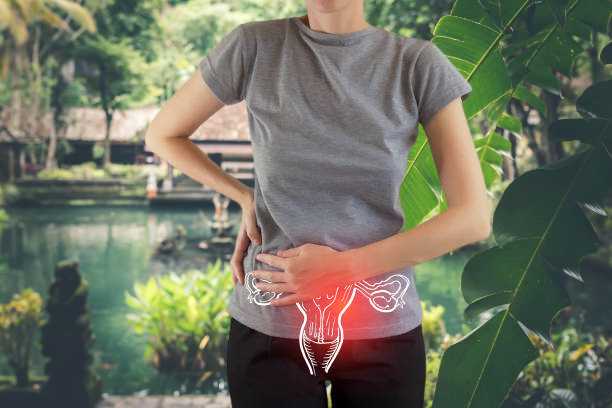Premenstrual syndrome: What is it?
Most females undergo series of physical and or psychological symptoms such as headaches, abdominal pain, bloating etc. One week or two prior to there period. This condition is know as Premenstrual syndrome. In this article we will be looking at premenstrual syndrome, What PMS is? Causes, Symptoms, Prevention, Treatments and much more.
What is premenstrual Syndrome?
➡️Premenstrual syndrome (PMS) is the physical and emotional problems that occur in women prior to menstrual period.
➡️Symptoms may occur only one day or as long as 2 full weeks before the period starts. A woman may have only one symptom or she may have many.
➡️Because the production of progesterone at the time of ovulation that seems to be associated with the onset of PMS, PMS can only occur during the time of ovulation until the menses begin (about 14 days).
➡️Occasionally PMS symptoms may persist until the period is over, Problems that occur at other times during the month cannot be PMS.

Symptoms of PMS
➡️Symptoms tend to recur in a predictable pattern. But the physical and emotional changes your experience with premenstrual syndrome may vary from just slightly noticeable all the way to intense. Still, you don’t have to let these problems control your life.
➡️Treatments and lifestyle adjustments can help you reduce or manage the signs and symptoms of premenstrual syndrome.
Emotional Symptoms
👉 Tension or anxiety
👉 Depressed mood
👉 Mood swings and irritability or anger
👉 Appetite changes and food cravings
👉 Trouble falling asleep (insomnia)
👉 Social withdrawal
👉 Poor concentration
👉 Change in libido
➡️Physical signs and symptoms
👉 Joint or muscle pain
👉 Headache
👉 Fatigue
👉 Weight gain related to fluid retention
👉 Abdominal bloating
👉 Breast tenderness
👉 Acne flare-ups
👉 Constipation or diarrhea
👉 Alcohol intolerance

●For some, the physical pain and emotional stress are severe enough to affect their daily lives.
●Regardless of symptom severity, the signs and symptoms generally disappear within four days of the start of the menstrual period for most women.
●How do I know if I have PMS symptoms?
●PMS symptoms usually occur 5-7 days before a girl/woman’s menstrual period. There are actually a total of 150 known symptoms of PMS.
●The most common symptoms include: mood swings, breast soreness, bloating, acne, cravings for certain foods, increased hunger and thirst, and fatigue.
●Other symptoms may include constipation or diarrhea, irritability, and feeling blue or down in the dumps.
●If you have any of these symptoms and they happen during the week before your period starts and go away when your period arrives or a few days later, you may have PMS.
●If you feel blue or down in the dumps and these feelings last longer than the week before your period, its probably not related to PMS.
●In this situation its particularly important to ask your primary care provider if you should talk to a counselor or therapist.
●Since there are so many possible symptoms of PMS, its a good idea to keep track of them. Remember to note if the symptoms are mild, moderate, or severe.
●Use a period and symptom tracker for 2-3 months and then bring it to your next medical appointment. A record of your symptoms can help your health care provider figure out the best treatment choices for you.
●Key Facts on how to use a period and symptom tracker
👉 Review the sample Monthly Period & Symptom Tracker.
👉 Print out copies of My Monthly Period & Symptom Tracker.
👉 Put a check mark in the appropriate box (or boxes) for each day of the month. If you don’t have any flow or any symptoms on any given day, leave the box empty. Refer to the Blood Flow Key at the bottom for Flow definitions.
👉 The dates at the top are the same as the dates in one month. Each month has 30 or 31 days (except for February which has 28 or 29 depending unless it is a leap year).
●Remember to bring My Monthly Period & Symptom Tracker with you to your medical appointments.
●Which non medical changes might help control PMS?
●Nutrition and lifestyle changes are a first step.
●The following suggestions are healthy recommendations for everyone and are particularly helpful for young women with PMS symptoms, according to research.
Nutrition Changes:
👉 Eat whole grains that are high in fiber (such as whole grain breads, whole wheat pasta, and high fiber cereals instead of white bread, white pasta, and sugary cereals).
●Whole grains help to keep blood sugar levels more stable compared to refined grains such as white bread, which could keep cravings under control and prevent mood changes associated with PMS.
👉 Cut back on sugar and fat: Even though your body may be craving sweets or fast foods that are high in fat, try to limit these foods since they may add to your PMS symptoms such as bloating.
👉 Limit foods high in salt (sodium) for the few days before your period: For example, avoid: canned soups, Chinese food, hotdogs, chips, and pizza which are very high in sodium. Cutting down on sodium may help to control bloating by lowering the amount of fluid your body retains.
👉 Keep hydrated: Drink plenty of water to reduce bloating and help with digestion.
👉 Cut back on caffeine: Reducing the amount of caffeine you eat and drink (soda, coffee drinks, and chocolate) may help you feel less tense and may also ease irritability and breast soreness.
●Try eating up to 6 small meals a day instead of 3 large ones and include a balance of foods and nutrients (lean protein, whole grain carbohydrates, fruits/veggies, and healthy fats such as olive oil or avocado) at each small meal. This will help keep your blood sugar levels even, which will give you energy that lasts.
👉 Dont forget calcium! Research studies have shown that getting 1300 mg of calcium per day helps with PMS symptoms such as mood swings, headaches, and irritability. This means you should eat or drink three to four servings of high calcium foods (such as milk, fortified OJ, or soy milk) each day or take calcium supplements.
●Lifestyle changes
👉 Fit in exercise: Do aerobic exercise (such as running, dancing, or jump roping) for 30-60 minutes a day, 4 to 6 times a week.
👉 Dont miss your sleep: If youre a teen, you need about 9 hours of sleep each night.
👉 Try to maintain a regular schedule: This includes meals, exercise, and bedtime.
👉 Keep stress to a minimum: If possible, try to schedule events that you think could be stressful during the week after your period.
👉 Avoid alcohol: Drinking alcohol before your period can make you feel more depressed.
●Are there medications that might help?
●If your symptoms dont improve with a few nutrition and lifestyle changes, talk with your health care provider. He/she may be able to prescribe medicine that will help lessen or get rid of your discomforts.
●There are many different medicines that are currently used to treat PMS symptoms.
●The most commonly prescribed are oral contraceptives (birth control pills) which prevent ovulation and keep hormone levels even.
●Most pills (particularly those that are low in progestin or contain drospirenone) can improve symptoms. Sometimes symptoms can improve even more if the pill is taken continuously (one active pill every day and no placebo pills).
●Other medications include ibuprofen or naproxen sodium that can help to relieve lower back discomfort and headaches and mild diuretics such as Spironolactone to lessen bloating and mood changes.
●If depression is a significant issue, your health care provider may prescribe antidepressants such as Fluoxetine, Sertraline.
●Are there vitamins or minerals that will improve my symptoms?
●Although more research studies are needed, there are certain vitamins and minerals that may help PMS symptoms. Several research studies show that calcium can significantly decrease many of the symptoms associated with PMS.
●Make sure that you are getting the recommended 1300 mg/day from calcium- rich foods or drinks or from supplements. Other supplements that could help with PMS symptoms are magnesium (400 mg/ day), vitamin B6 (100 mg/day), and vitamin E (400 IU/day), but more research needs to be done.
●Check with your health care provider about whether you should try them and how much you should take because taking high doses of supplements can have unpleasant or dangerous side effects. For example, high doses of magnesium may cause diarrhea in some people.
●Sometimes other medical conditions can mimic or act like PMS symptoms, so its important to keep your health care provider up-to-date with any health issues you are having.
●If your PMS symptoms are so severe that you feel very depressed, talk with a parent, guardian, or trusted adult, and make an appointment with your health care provider as soon as possible.
Read:how to manage ovarian cancer
